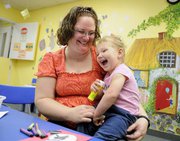Smart on Crime means….
As the theme of Smart on Crime in Waterloo Region began to take shape, we wanted to make sure that this community plan reflected your ideas of what ‘smart on crime’ means. We took to the ‘internet streets’ and asked you to share your ‘smart on crime’ ideas. The challenge was thrown down….
In 7 words or less, we invite you to finish this statement:
“Being Smart on Crime means…”
If you would like to add your ‘Smart on Crime means…’ statement, feel free to add it using the comment box at the bottom of the page.
Here is the growing list of responses we’ve received.
- a commitment to preventing crime ~ Bill Davidson, Langs Farm
- connecting what’s right with what works
~ Christine Bird, Alliance for Children & Youth of Waterloo Region - best decisions for today and the future identifying and addressing social disparity
- investing in PREVENTION, not prisons
~ John Shewchuk, Waterloo Catholic District School Board & WRCPC Chair - community involvement; people don’t victimize an “US” ~ Graham Yeates, 2010 Candidate Kitchener Ward 9
- community awareness, active participation = safe city ~ Giselle
- commitment to long term investments and approaches engaging communities, identifying needs and developing strategies
~ Chris McEvoy, Kitchener - understanding, connecting and caring for all citizens ~ Julie Hill, Waterloo
- making prevention a community priority ~ Susan Cameron, Kitchener
- making prevention a priority ~ Jane Mitchell, Regional Councillor, Region of Waterloo
- fostering respect & trust, sharing wealth & opportunity ~ Kate, Waterloo
- demonstrating caring, respect, imagination, momentum & empathy ~ Bruce
- learning about it, preventing & stopping crime
- being proactive by investing early in people staying proactive, not reactive
~ Julie Lass, Region of Waterloo - addressing root causes and social disparity ~ Lindsay Klassen
- dedication, cooperation, anticipation education and rehabilitation ~ Dan, Kitchener
- develop respect through example and education ~ Sharon Kropf, Waterloo Catholic District School Board
- utilizing practical and well reasoned preventive methods
- don’t just toss money at the problem ~ Todd Cowan, Woolwich Township
- prevention through fostered community partnership and outreach ~ Daniel Lamhonwah, Region of Waterloo
- always stay alert and ready to help ~ Marina Ducharme, Waterloo Catholic District School Board
- focus on prevention, not just criminal justice fostering trust and belonging ~ Lisa Armstrong, Waterloo
- building community, building awareness ~Atinuke Bankole, Cambridge, 2010 Candidate Regional Councillor
- being respectful, reliable and responsible ~ Anton Milardovic, Teacher, St. Benedict Catholic Secondary School
- evidence based public policy, not blind ideology
- impact, not react ~ Sharon Charbonneau, Waterloo
- challenging basic assumptions and proposing unconventional alternatives
~ Emily Schacht, Waterloo - providing community supports, not mandatory minimum sentences ~ Reg Weber, City of Cambridge
- making decisions using quality evidence based research ~ Wayne Morris, Conestoga College
- investing in children and youth ~ ZS Worotynec, immigrantchildren.ca
- creating alternative opportunities building community ~ Trent, Kitchener
- knowing the difference between fact and fiction ~ ROOF
- educating ourselves and our children ~ Carolyn Bickers, Region of Waterloo
- providing community supports, not incarceration ~ Reg Weber, City of Cambridge
- getting to know your neighbours raising our children as a community
~ Paula, Kitchener - wisely implemented primary, secondary & tertiary prevention ~ Larry Fletcher, White Rock. B.C.
- implementing techniques to maintain a safe community ~ Shelley, Region of Waterloo
- decisions directed by knowledge, not ideology~Tom Brenner
- looking for the ‘why’ of crime
- supporting evidence based, long term successes
- abandoning what we know DOESN’T work
- building an informed community
- treating victims & offenders with dignity
- community awareness
- community responsibility – we’re all responsible for living safe
~ Joanne Wilson, Community Placement, Region of Waterloo - building safe neighbourhoods through strong community partnerships
~ Steve Beckett, Waterloo Regional Police Service - addressing the root causes of crime
- listening to what kids have to say
- being aware of yourself and your community ~Deborah Howard, Region of Waterloo
- providing healthy supports and opportunities to everyone
- creating a culture of peace and acceptance ~ M. Backewich, Waterloo Catholic School Board
- criminal justice is not used to deal with health & social issues
- taking (and sharing) walks through the neighbourhood ~ Jason Hammond, Grand River Car Share
- taking an asset building approach
~ Wraychel Horne, New Hamburg/Youth Opportunities Unlimited, London - Be active in your neighbourhood association
~ Donna Reid, Cambridge, 2010 Candidate Ward 1 - proactively replacing negative motivators with positive ones ~ Derek Satnik, Kitchener Candidate for Regional Council, 2010
- providing proactive positive reinforcement
~ Aaron Fewkes, Wilmot Township Candidate for Ward 4, 2010 - seeking causes, finding solutions, building a future ~ Patti K., Region of Waterloo

 At the time, it was a four-year program that spanned junior kindergarten to Grade 2, and gave children things like in-school help, nutrition and behavioural programs. Their parents and neighbourhoods got to choose what was offered, hired staff, and received programs ranging from job search help, parenting and language training.
At the time, it was a four-year program that spanned junior kindergarten to Grade 2, and gave children things like in-school help, nutrition and behavioural programs. Their parents and neighbourhoods got to choose what was offered, hired staff, and received programs ranging from job search help, parenting and language training.